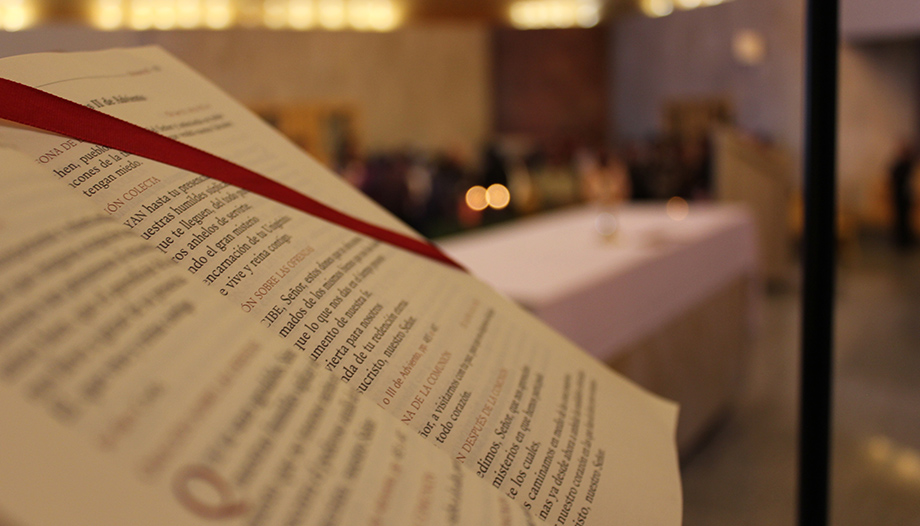In the ancient world, dealing with the gods was a delicate matter. They had to be placated, kept happy; it was a balancing act, pitting one against the other. One could get jealous: Jupiter might not like Venus getting too much attention.
Ancient Israel came to understand that there was only one true God, a God who took great pains to reveal and show his love to them. The Old Testament is full of beautiful declarations of God's love, but, with a few exceptions such as the author of today's psalm (Ps 17), who says to God: "I love you, Lord; you are my strength."Israel never fully understood the message that it should reciprocate to God. The pious Jew could show tremendous faithfulness and faith in God, but not a tender love for God. God was trying to woo Israel, but Israel never "got" the level of romance expected.
We can be a bit like that. God offers and asks for love, as he does in today's first reading - he seeks a relationship of love - and we only return respect. He made us out of love, for love and to love. Our "DNA" is love. It is our fundamental identity. And God urgently asks us to return love: "You shall love the Lord your God with all your heart, with all your soul, with all your mind, with all your being.".
"Thou shalt love the Lord thy God." He not only commands, but in a certain sense asks for love. Jesus repeats and confirms this Old Testament message in today's Gospel, but in an even more powerful way when we consider that he himself is God made man.
And this is what is fundamentally different in Christianity, because it is not a religion invented by man. Man could not even have imagined it. Because the reality is far beyond our comprehension. The reality is that God is love: his very life is love. That is why the doctrine of the Trinity is not an abstract dogma: it speaks to us of the intimate life of God, which is communion, relationship, love.
No one could ever have imagined a religion in which God himself became vulnerable, because becoming vulnerable is an essential part of love and an essential part of Christianity. If you don't become vulnerable, you don't love. If you don't reveal your heart, your feelings, even your weakness to the other, taking the risk of rejection or betrayal, you don't love. And Christianity is about God making himself vulnerable to earn our love. To love God because God made us, and then became man, so that we might love him in return.
Homily on the readings of the XXXI Sunday in Ordinary Time (B)
Priest Luis Herrera Campo offers his nanomiliaA short one-minute reflection for these Sunday readings.









